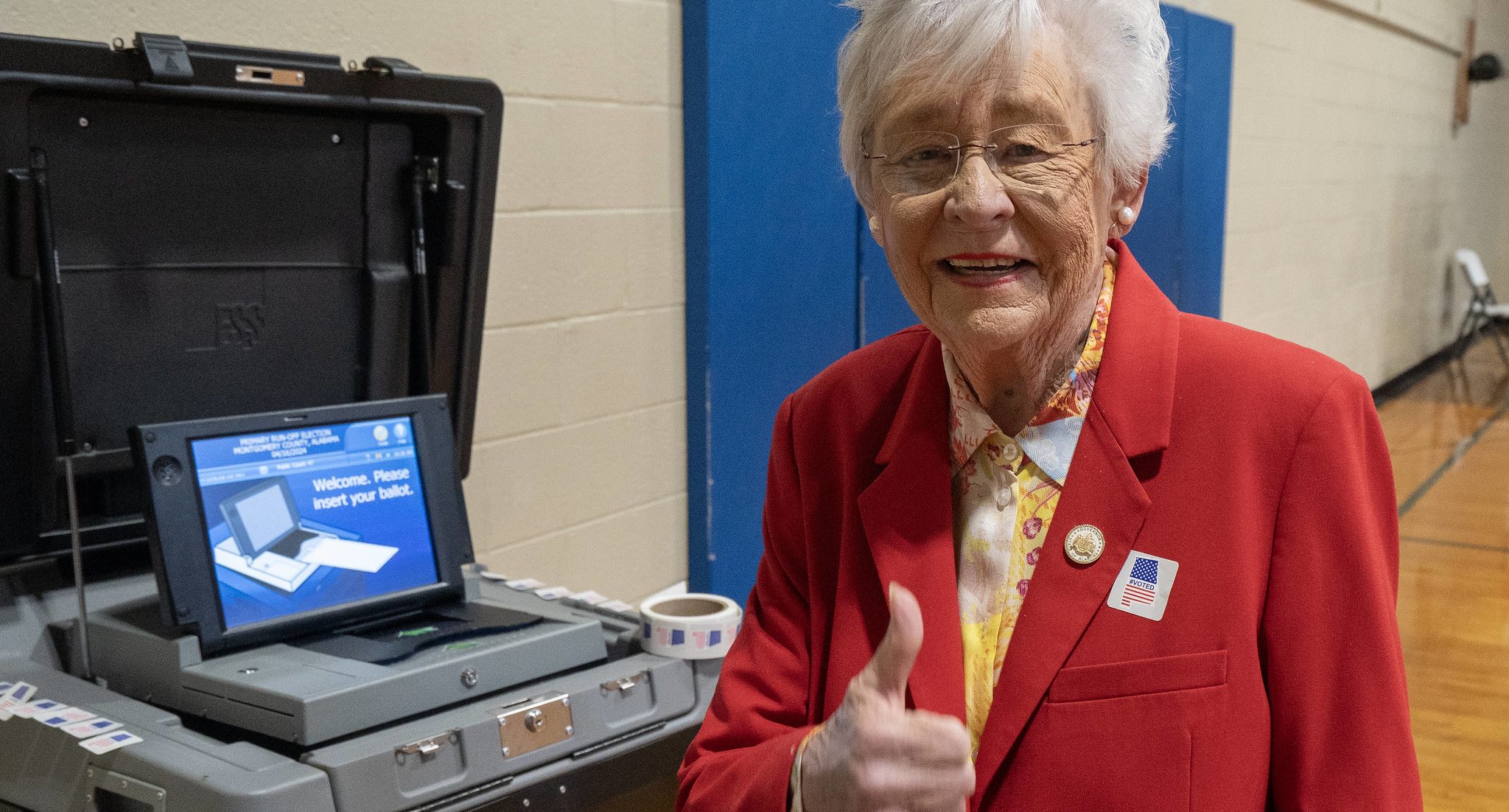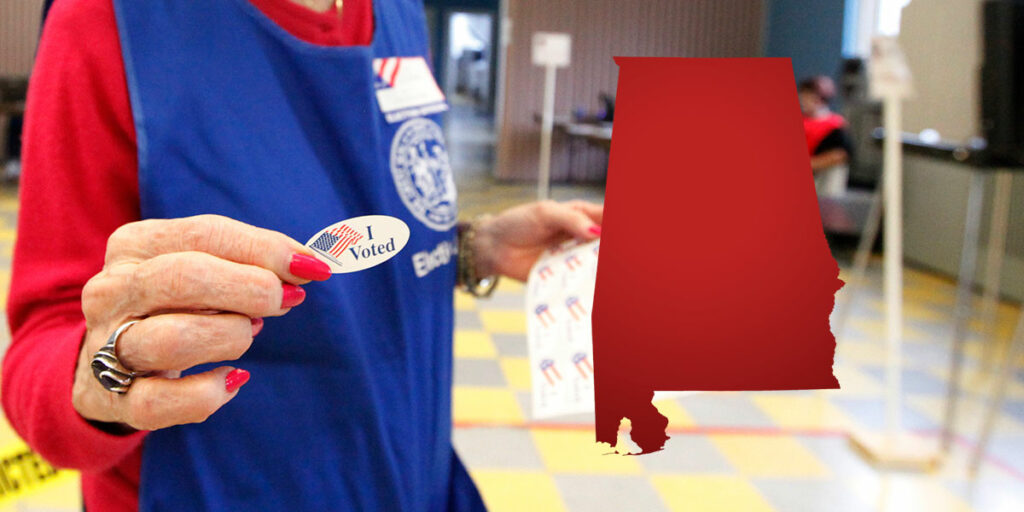Governor Kay Ivey signed legislation Friday that would effectively ban ranked-choice voting in future elections.
SB186, sponsored by State Sen. Arthur Orr (R-Decatur), passed by a 74-28 in the House after previously clearing the Senate by a 34-1 vote last month.
The legislation states that “Ranked-choice voting shall not be used in determining the election or nomination of any candidate to any local, state, or federal office,” but doesn’t apply to “electors who are entitled to vote absentee ballot under the federal Uniformed and Overseas Citizens Absentee Voting Act.”
In elections that utilize ranked-choice voting, voters are forced to rank candidates in numerical order rather than choosing their most preferred candidate.
This means that instead of being able to vote for a single candidate, voters would be offered a choice of candidates to rank in order of preference. Candidates who receive 50 percent or more votes win automatically.
However, if no candidate garners at least 50 percent of the votes cast, then the lowest scoring candidate is eliminated with their votes assigned to the other candidates. The process continues automatically until a single candidate reaches 50 percent.
“I am proud to sign this bill which takes another step towards ensuring the confidence in our elections,” Ivey said. “As our Secretary of State Wes Allen put it, ranked-choice voting makes winners out of losers. Not only is ranked-choice voting confusing to voters, it also limits their ability to directly elect the candidate of their choice. Voting should be simple, and this complicated and confusing method of voting has no place in Alabama’s elections.”
Maine and Alaska are the only two states who currently use ranked-choice voting, which has already caused controversy in those states. In Alaska, Democrat Mary Peltola won the state’s at-large congressional seat last year even though close to 60 percent of voters had cast their ballots for a Republican candidate.
Other states that have prohibited ranked-choice voting in their elections include Florida, Idaho, Tennessee, Montana, South Dakota, Kentucky, and Oklahoma.
The law will take effect October 1, 2024.
Yaffee is a contributing writer to Yellowhammer News and hosts “The Yaffee Program” weekdays 9-11 a.m. on WVNN. You can follow him on Twitter @Yaffee













